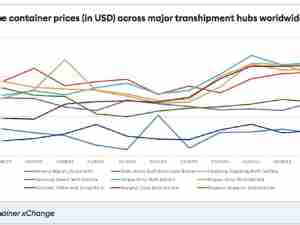"In dry bulk we do not share the view that shipping is in crisis -- there is no crisis," chief executive Herman Billung told analysts in a presentation .
"There are some dark clouds on the horizon but the underlying market is, in fact, very good."
Golden Ocean reported a $27.3 million first-half operating profit, down from a restated $31.3 million in the 2010 period and compared with a forecast for $20 million in a Reuters poll.
It announced a $0.02 divided, a penny less than forecast, and balanced that with a share repurchase programme to leverage its current weak stock price.
"The dividend is alright and the share repurchase program might be positive for the share price development," Nordea Markets analyst Anders Karlsen said.
He said Golden Ocean, which locks a higher portion of vessels in long-term charters than competitors, appeared to have renegotiated contracts to less favourable terms for itself.
Its shares were up 6.5 percent to 4.59 crowns at 0845 GMT, topping a 0.8 percent rise in the main Oslo index .
Billung said spot rates would likely stay around current levels through most of 2013, with a possible turnaround that year.
Golden Ocean shares dipped to a 52-week low of 3.3 crowns on Aug. 9. They tend to track the Baltic Dry Bulk Index , which has turned up in recent weeks, closing at 1,602 points on Wednesday after a four-month low of 1,253 on Aug. 2.
The company said it saw robust demand growth for ore and coal as the Chinese economy grows and Japan rebuilds from the Fukushima earthquake, adding sea lanes would remain overcrowded with competing ships for most of 2012.
"Everyone knows we are struggling with a large order book (for new ships marketwide), but we see light at the end of the tunnel," said Billung. "I think we will end up with a fleet growth of around 13 percent this year."
The company said: "Even though the pace of deliveries will peak this year we still have to get through another three quarters of 2012 before deliveries are back to levels which should be in line with demand growth."
Billung said dry bulk shippers have adopted a practice of "slow steaming" to help relieve market overcapacity, and said the average speed had fallen by two knots since 2008. (Reuters)









